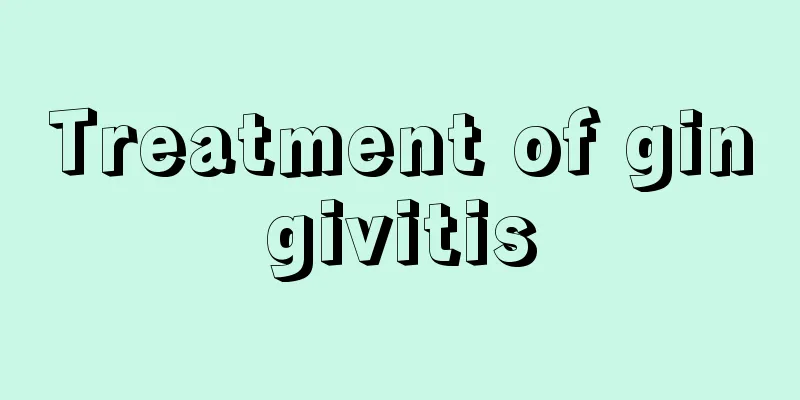Treatment of gingivitis

|
Oral hygiene is very important. If our mouth is not clean, it will emit an unpleasant odor and affect our appetite, making any food taste bland. As the saying goes: Diseases come from the mouth. If oral hygiene is not kept clean, it is easy to get infected with diseases. Gingivitis is a common disease that causes various problems with our gums. What are the treatments for gingivitis? There are many causes of gingivitis. The most common one in daily life is inflammation, which causes the gums connecting the teeth to become red and swollen, and painful. Generally, no treatment is required and the symptoms will disappear on their own in about three or four days. However, we need to pay attention to maintaining oral hygiene and develop a good habit of brushing our teeth in the morning and evening. 1. Eliminate the cause: Thoroughly remove plaque and tartar through scaling, and eliminate factors that cause plaque retention and local irritation to the gums. For acute gingival papillitis, local irritants should be removed. For patients with more severe inflammation, local medication can be used in combination with other treatments. Commonly used local medications include 1% hydrogen peroxide, chlorhexidine gargle, and iodine preparations. Acute inflammation can be treated with the antibiotics amoxicillin and metronidazole. 2. Surgical treatment: A small number of patients with hyperplastic gingivitis have obvious gingival fiber hyperplasia, and the gingival shape cannot return to normal after the inflammation subsides. Gingivoplasty can be performed to restore the physiological shape of the gums. 3. Prevent recurrence: The therapeutic effect of chronic gingivitis is ideal, and it is important to prevent the recurrence of the disease. It is necessary to maintain good oral hygiene habits consistently and conduct regular checkups and maintenance (six months to one year) to maintain the therapeutic effect and prevent recurrence. 4. Patients with necrotizing gingivitis can also use 1%-3% hydrogen peroxide solution topically for wiping, rinsing and repeated gargling, which helps to remove necrotic tissue and inhibit anaerobic bacteria. Supportive therapy such as vitamin C and protein should be given systemically, and systemic factors should be corrected and treated. Our mouth is a gathering place for bacteria, so we must pay attention to oral hygiene. Especially before going to bed at night, pay attention to cleaning your teeth. When brushing our teeth, we can choose a soft-bristled toothbrush, which is not only comfortable to brush, but also can clean our gums and tongue. Gingivitis should be treated in a regular dental hospital. Don't underestimate it. |
<<: Will irregular menstruation lead to infertility?
>>: Be sure to turn off the computer during lunch break in the office
Recommend
What is the correct way to use expander?
Many people may not know about expansion agents, ...
What's wrong with the black spots on the skin
The most common reason for black spots on the ski...
There is a lump on the right side of the chin
The phenomenon of a hard lump on the right side o...
What are the examination methods for colorectal cancer
Colorectal cancer emphasizes early diagnosis and ...
What are the examinations for preventing lung cancer
At present, the incidence and mortality of lung c...
The efficacy and function of flour facial mask
It may be hard to imagine that flour can be used ...
What items should be reviewed after lung cancer surgery
After lung cancer treatment, regular follow-up ex...
There are acne marks on the chin
The chin is a place where acne is prone to appear...
What are the symptoms of gastric perforation? It turns out there are four types
Speaking of gastric perforation, a stomach diseas...
Can a frying pan be used to cook?
Frying pans are a very common cooking utensil in ...
What to do if you accidentally eat a cockroach
We all know that the most common animal in daily ...
There is one thing women have that men should never use
In recent years, as "flower boys" have ...
What increases satiety?
The feeling of fullness is a subjective feeling i...
Osteosarcoma diagnostic reference standard
According to a survey, about 20% of osteosarcoma ...
Can frozen shoulder heal itself without treatment?
The occurrence of frozen shoulder cannot be ignor...









